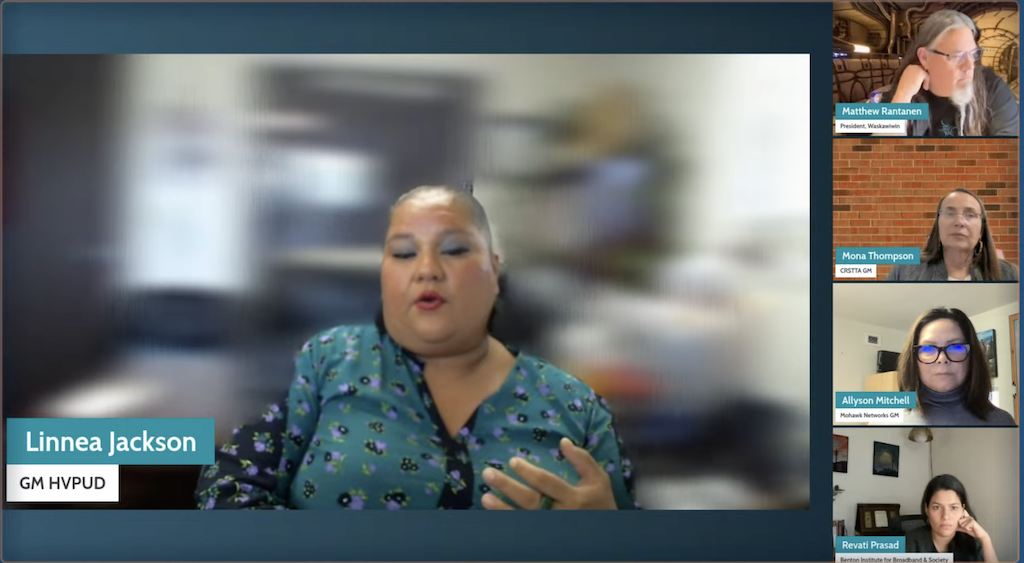Tribal Providers Say They Rely on ACP to Connect Communities
The fund is set to run dry in 2024.
Jake Neenan

WASHINGTON, October 30, 2023 – The Affordable Connectivity Program is essential for keeping people connected on Tribal lands, Tribal broadband providers said on Monday,
Started in 2021 with $14 billion set aside by the Infrastructure, Investment and Jobs Act, the ACP provides over 21 million Americans with a monthly internet subsidy – $30 for low-income families and $75 residents of Tribal lands. The program is set to run out of money in 2024.
That would leave many Tribal residents faced with a voice between their internet bill and other essentials like food and electricity, said Linnea Jackson, the general manager of the Hoopa Valley Public Utilities District.
Her customers “need the internet for everyday life, but they also rely on that benefit” to make their monthly payment, she said at a webinar on Tribal broadband.
Allyson Mitchell, general manager of Tribal broadband provider Mohawk Networks, said the 500 ACP recipients on her networks are similarly reliant on the money to stay connected.
The Biden administration asked Congress last week to shore up the ACP with an extra $6 billion in its next spending package. That, White House estimates, would be enough to continue the program through December 2024.
A bipartisan chorus of lawmakers have been making similar pleas in recent months. Proponents of the program point to its roles in closing the digital divide – allowing low-income Americans to use the broadband infrastructure built with federal funding programs. In September, broadband companies pushed Congress to safeguard the ACP from gridlock on Capitol Hill by rolling it into an annual fund run by the FCC.
With a new speaker elected in the House, Congress has until November 17 to fund the government before the current stopgap measure runs out.
Jackson is hopeful that will include money for the ACP, she said, but she and her colleagues are bracing to make tough decisions if the fund dries up next year.
“We can’t just be providing service at no cost,” Jackson said. “We might have to look at shutting off those people, which is the opposite of what we want to do. We’re trying to serve an underserved community.”









Member discussion